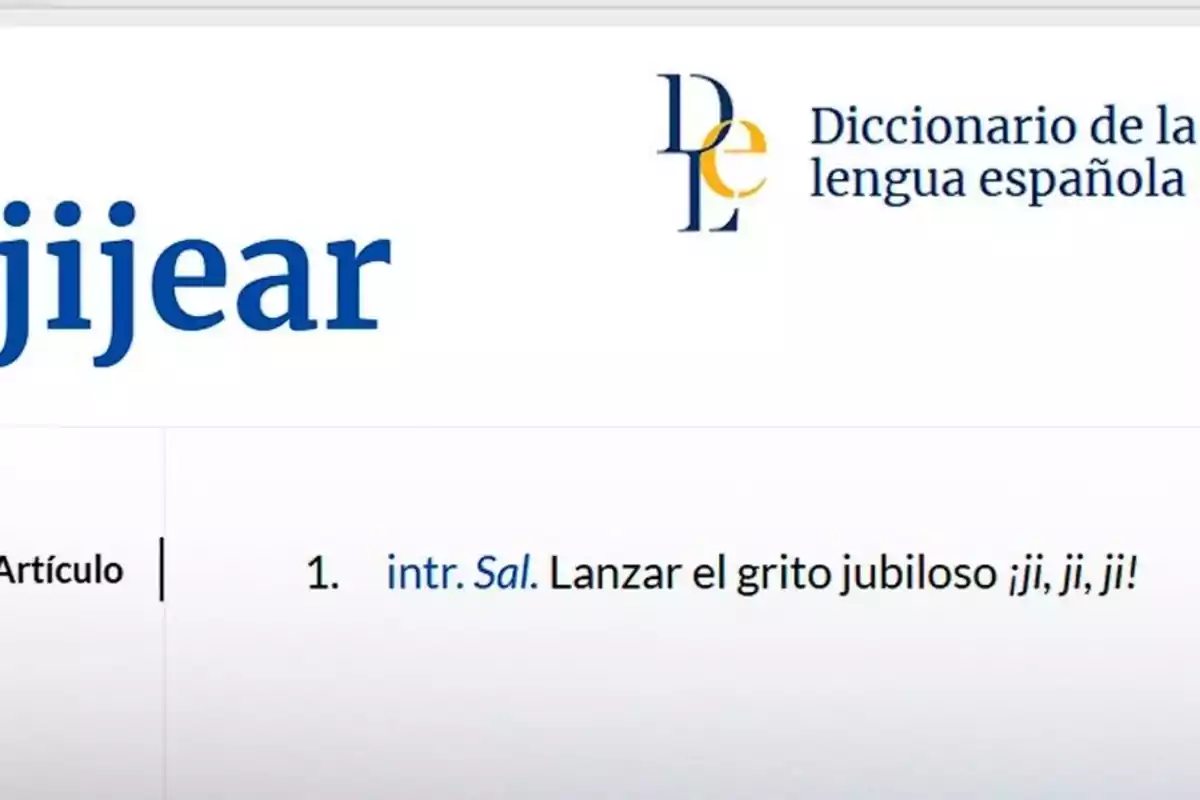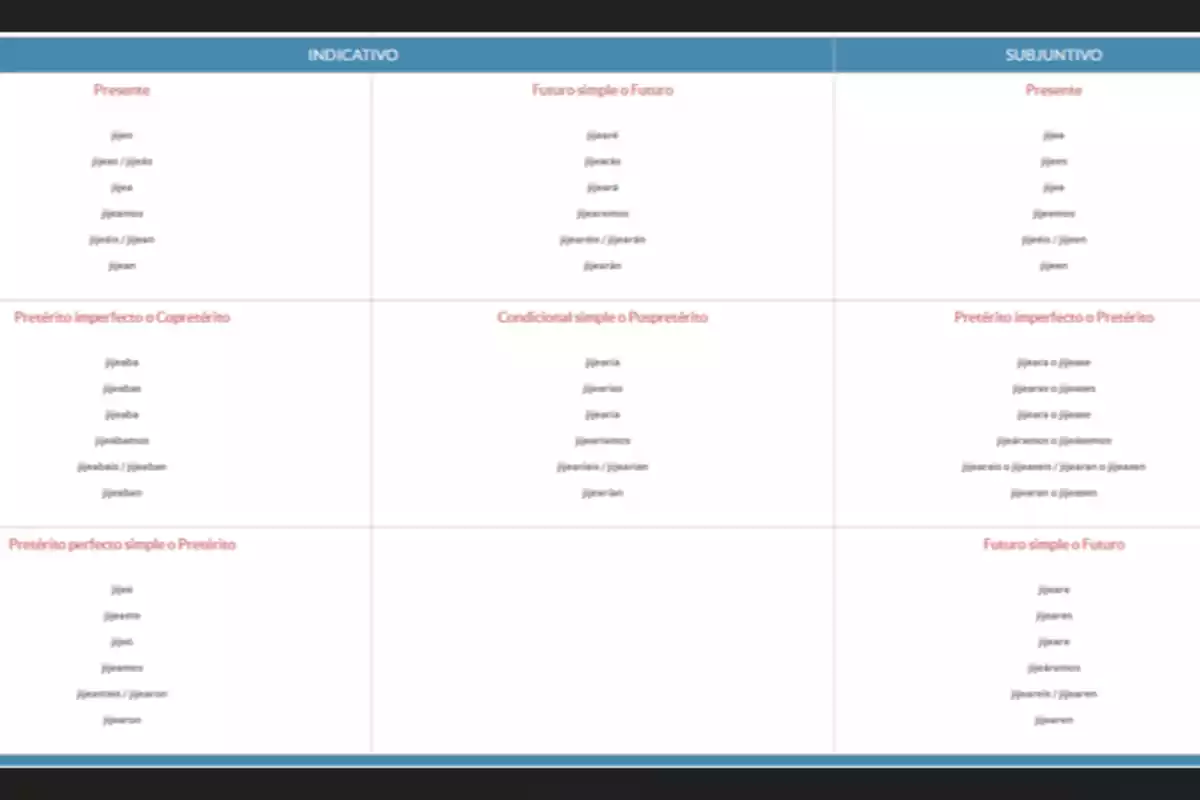
The RAE included the word 'jijear' in the Dictionary of the Spanish Language.
The RAE detailed the complete conjugation of the verb 'masificar' and it went viral on social media
In a new update of the Diccionario de la lengua española (DLE), the Real Academia Española (RAE) included a term that, although it was part of informal and popular speech, had not yet received academic legitimacy: the verb "jijear."
According to the official definition, "jijear" is an intransitive verb, used in El Salvador (Sal.), which means "to utter the joyful cry 'ji, ji, ji!'" It is an onomatopoeic expression that attempts to capture the spontaneous and cheerful laughter or exclamation of someone who lets themselves be carried away by euphoria.

As with every new formal addition, the word did not arrive alone: RAE also published its complete conjugation, covering both the indicative and subjunctive moods, in all verb tenses, which allows for its correct use in any grammatical context.
Conjugations of the verb "jijear"
Indicative Mood
Present: jijeo, jijeas, jijea, jijeamos, jijeáis/jijean, jijean.
Imperfect past: jijeaba, jijeabas, jijeaba, jijeábamos, jijeabais/jijeaban, jijeaban.
Simple past: jijée, jijéaste, jijéo, jijeamos, jijéasteis/jijearon, jijearon.
Simple future: jijearé, jijearás, jijeará, jijaremos, jijearéis/jijearán, jijearán.
Simple conditional: jijearía, jijearías, jijearía, jijearíamos, jijearíais/jijearían, jijearían.
Subjunctive Mood
Present: jijee, jijees, jijee, jijeemos, jijeéis/jijeen, jijeen.
Imperfect past: jijeara or jijease, jijearas or jijeases, jijeara or jijease, jijéáramos or jijeásemos, jijearais or jijeaseis/jijearan or jijeasen, jijearan or jijeasen.
Simple future: jijeeare, jijeeares, jijeeare, jijééremos, jijeeareis/jijearen, jijearen.

This phenomenon not only draws attention because of the unusual nature of the incorporated verb, but also because of its grammatical richness: RAE did not skimp on academic rigor when developing all its possible forms, even in archaic or rarely used moods such as the future subjunctive.
The decision was received with surprise, humor, and enthusiasm by users on social media, who quickly celebrated with memes and posts about it. The use of "jijear" in different registers reflects a cultural flexibility that RAE has begun to embrace more freely in recent years.
"Se me jijean los jijolines," users joke on X, capturing the festive spirit with which the news was received.
The inclusion of "jijear" is a new example of how language evolves, not only out of technical necessity, but also because of popular vitality. In times when linguistic institutions seek to remain close to the real speech of speakers, this verb—born from joy, laughter, and spontaneity—finds its place in the dictionary.
More posts: